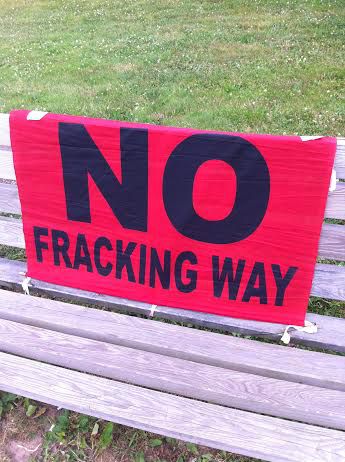Nova Scotia’s fracking review panel hosted their first meetings to share the draft results of their research, on Wednesday in Sydney and Thursday in Port Hawkesbury.
While there are nine panelists with a variety of expertise, the meetings are hosted by Dr. David Wheeler, chair of the review panel and president of Cape Breton University.
The discussion papers are a response to an unofficial moratorium placed on fracking by the previous NDP government, and set out to prove fracking will not cause harm to Nova Scotia’s economy, environment, and communities.
The panel’s research was not well received by the audience at either meeting. In Sydney, 25 people attended the meeting. Wheeler emphasized the panel intends to make this as interactive a process as possible, and encouraged audience participation.
Several audience members expressed concern about the absence of any panelists other than Wheeler -- including the authors of each discussion paper -- and how it will be difficult to have an authentic discussion without the experts there to answer questions.
Around 50 people attended the meeting in Port Hawkesbury on Thursday. Audience members expressed concern with the unscientific nature of the review, as well as fracking in general and the threats it poses to communities and the environment.
Due to the high level of audience participation, Wheeler delivered only half of the presentation, and did not get to discuss threats fracking poses to the province’s groundwater.
Community member JJ Klimek shared his disappointment of the process. “This review is about proving that fracking will not cause harm, and it has not done that," he said.
During the second half of the meeting, four individuals criticized the estimated economic benefits of fracking based on uncertain quantities of shale gas reserves.
Dr. Wheeler then called on a woman near the back who had her hand up. She stood and introduced herself as Barbara Low, a Mi’kmaq woman, and that she was here to safeguard Mi’kmaq lands and water. She then said that Dr. Wheeler failed to address the fact that this meeting was taking place on Mi’kmaq territory.
Despite this, she welcomed all of us, as well as the presenter, to her people’s lands, and shared the Native Council of Nova Scotia’s position on fracking, which states:
“The community of Mi’kmaq/Aboriginal peoples continuing on traditional ancestral homelands organized as the Native Council of Nova Scotia, oppose the practice of hydraulic fracturing for oil and gas in Nova Scotia.”
She finished by stating: “I want to make it clear that we want the land to be safe and secure for future generations, and we will not allow fracking to happen on Mi’kmaw territory.”
There are more meetings happening all through next week:
New Glasgow - July 21, 12 to 2 at Pictou County Wellness Centre
Tatamagouche - July 21, 6:30 to 8:30 at Tatamagouche Centre
Amherst - July 22, 12 to 2 at The Dominion Public Building
Truro - July 22, 6 to 8 at Rath Eastlink Community Centre
Kennetcook - July 23, 12 to 2 at Noel Legion
Halifax - July 23, 6 to 8 at Kings College
Yarmouth - July 24, 11am to 1 at Art Gallery of Nova Scotia
Windsor - July 24, 6:30 to 8:30 at Windsor Community Centre (Hants County War Memorial Community Centre)
Whycocomaugh - July 29, 6 to 8 at Whycocomaugh Waterfront Centre
For more information visit: http://www.cbu.ca/hfstudy/events
Follow the author on twitter: @livbochenek



